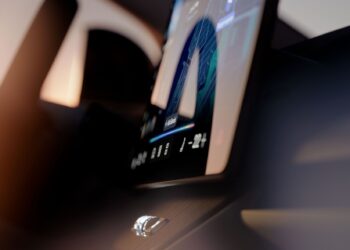Toyota’s Lexus LFA V-10 is widely regarded as one of the greatest-sounding engines in automotive history—a high-revving, naturally aspirated masterpiece co-developed with Yamaha. But did you know that Toyota once tried to transplant that glorious scream into an everyday car?
It turns out, the experiment was a complete disaster—and according to Toyota engineers, it was downright comical.
Toyota’s Hilarious Attempt to Make a Regular Car Sound Like an LFA
Assistant Manager Shinichi Sano of Lexus’ Vehicle Performance Development Department No. 1 recently revealed that Toyota engineers once attempted to recreate the LFA’s sound in a normal road car.
The result?
“A fast sound, with too much acoustic pressure, will only make a slow car seem even slower.”
In other words, trying to replicate a 9,000 RPM V-10 howl in a car that couldn’t match the LFA’s blistering performance just made it sound comically out of place.
“We realized that the LFA’s tone and acoustic pressure only fit because they are backed up by its acceleration.”
It’s an important lesson in sound design—an engine’s noise isn’t just about volume and tone, but also how it matches the vehicle’s actual performance. Imagine hearing a Formula 1-style scream from a Toyota Camry at a red light—it would sound utterly ridiculous.
While Toyota engineers never released a recording of their failed experiment, we can only imagine how bizarre it must have been to hear an LFA roar from something like a Corolla or RAV4.
Other Sound Experiments That Didn’t Go As Planned
The LFA wasn’t the only sound-engineering experiment gone wrong at Toyota.
At one point, engineers attempted to make a three-cylinder engine sound like a four-cylinder—a move likely aimed at making smaller performance cars feel more muscular.
The problem?
“The three-cylinder and four-cylinder sounds interfered with each other to produce something you couldn’t even call a sound.”
Rather than sounding more powerful, the mix ended up being a chaotic mess, proving that engine acoustics aren’t as simple as flipping a switch.
Toyota’s Next-Gen Performance Engines—No More Faking It
Toyota’s next wave of performance cars is shaping up to be more about authentic sound rather than artificial enhancements.
🔥 A New 2.0-Liter Turbocharged Monster
- Toyota is currently developing a G20E 2.0-liter four-cylinder engine, rumored to replace the 1.5-liter G16E used in the GR Yaris and GR Corolla.
- This new unit will produce over 400 horsepower, making it 100 HP stronger than its three-cylinder predecessor.
- It was spotted inside the mid-engine GR Yaris Concept M at the Tokyo Auto Salon, fueling speculation that it could power the reborn Celica or MR2.
🔊 Lexus’ V-8 Beast Is Coming
- The rumored Lexus LFR (spotted testing recently) will reportedly use a brawny, naturally aspirated V-8.
- Toyota insiders suggest it will be the street-legal equivalent of Toyota’s GT3 race car.
- Unlike previous attempts to “fake” engine sounds, Toyota now insists that a car should sound like what it is—not something else.
“It would be strange to hear a car with an eight-cylinder engine sounding like a three-cylinder machine, and vice versa,” said Yusuke Nakayama, another Lexus engineer.
Toyota has learned its lesson—authenticity matters.
Final Thoughts: A Lesson in Automotive Acoustics
Toyota’s failed attempts to force unnatural engine sounds onto vehicles serve as a reminder that sound is just as much about performance as it is about acoustics.
The LFA’s V-10 scream was legendary—but only because the car’s acceleration, power, and high-revving nature backed it up. Trying to force that same sound into a family sedan or an SUV was never going to work.
Thankfully, Toyota’s next generation of performance cars seems to be embracing authenticity, ensuring that each vehicle sounds like exactly what it is—nothing more, nothing less.
One thing’s for sure: Toyota’s future lineup won’t be making any “comically fast” sounds in slow cars anytime soon.










